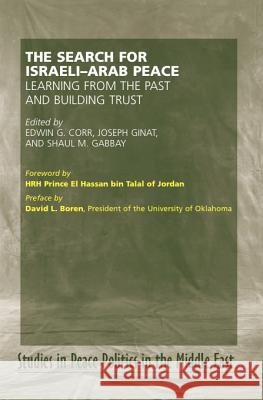Search for Israel-Arab Peace: Learning from the Past and Building Trust » książka
Search for Israel-Arab Peace: Learning from the Past and Building Trust
ISBN-13: 9781845191917 / Angielski / Twarda / 2007 / 286 str.
Distinguished academic and practitioner contributors from the Middle East, Europe and the US present a range of social science oriented options to get the peace process back on track. Using the history of the last half century of talks and negotiations, and contributor experience in negotiations, suggestions, proposals and formulas are presented to the contending parties that would develop a greater level of mutual empathy, understanding and trust that is required to jump-start the stalled peace talks into sincere and serious negotiations needed to achieve a comprehensive, lasting Middle East peace accord. The focus of this volume is on how to achieve an agreement, not on the components of viable peace agreements, which the editors believe largely exist and are the subject of a number of earlier studies, books and the texts of draft accords reached previously in government-to-government and in private-parties negotiations. The editors and contributors assume a two-state solution based on land for peace and emphasize the importance of the role of outside mediators, especially the United States. Throughout the arguments presented, potential dialogue and agreement is overshadowed by the increasingly violent and chaotic environment of the Middle East that began worsening in 2001 with the second intifada and the 2003 US invasion of Iraq. Peace and a final agreement can only be reached through Arabs and Israelis making tough decisions and compromises. Readers will be intrigued, amused, encouraged and disappointed by accounts of incidents that de-railed past talks, the innovative analyses concerning past negotiations, and the potential for application of social science knowledge to the building of trust needed for attaining agreement."











